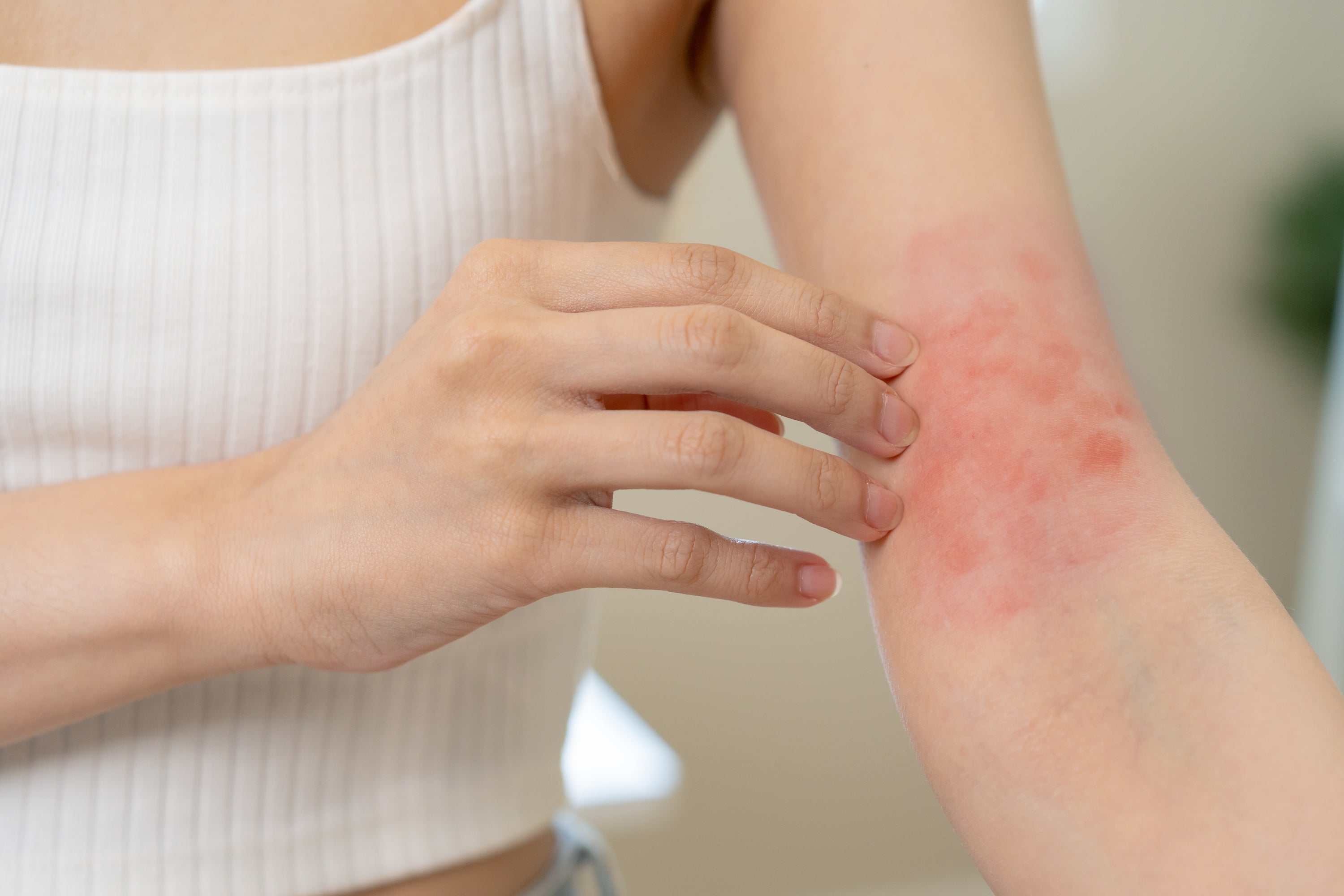20% of children and 10% of adults in the UK suffer from eczema
Prescription therapies treat eczema inflammation and reduce red, itchy and angry skin. Some can be prescribed by your GP but specialist treatments are only prescribed by a Dermatologist.
Treatments include:
- Steroid creams
- Calcineurin inhibitor creams
- Light therapy (phototherapy)
- Tablet therapies (immunosuppression)
- Biologics (injections) and JAK inhibitors
Steroid creams
These are one of the oldest and safest treatments for eczema. Steroid creams can be divided into mild, moderate, potent and very potent, based on how strong they are. Mild and moderate steroid crams can be bought from a pharmacy but others need a prescription and supervision from your doctor. Because steroid creams are applied directly to the skin, they are much safer than steroid tablets. The main side effect of steroid creams is skin thinning - but if used under the direction of your doctor this is very very rare.
Calcineurin inhibitor creams
Tacrolimus (Protopic) and Pimecrolimus (Elidel) are examples of calcineurin inhibitor. These are non-steroid anti-inflammatory creams. They are used in a similar way to steroid creams but don't cause skin thinning. These can only be prescribed by a Dermatologist. Calcineurin inhibitor creams aren't as effective as steroid creams but are useful in certain places such as the face. The main side effect is stinging, which usually improves with use.
Light therapy (phototherapy)
Light therapy is a specialised treatment prescribed by Dermatologists. Ultraviolet (UV) light has a mild immunosuppressive effect on the skin. Light therapy is a commitment, as treatments are usually 2 times a week over 3-6 months. Light therapy is usually well tolerated. The main side effects are redness and rarely burning. Some people have eczema that flares with sunlight and should avoid light therapy. UV light is a risk factor for skin cancer and people with a history of skin cancer should avoid light therapy.
Tablet therapies (immunosuppression)
Tablet therapies include steroid tablets (Prednisolone) and immunosuppression tablets (Methotrexate, Ciclosporin, Azathioprine, Mycophenolate Mofetil). Steroid tablets are only used for short courses as long-term use can cause lots of problems (such as high blood pressure and diabetes). Your GP may give you a short course of steroid tablets.
Immunosuppression therapies are prescribed by Dermatologists for severe cases of eczema. These work by reducing the activity of the body's immune system. They need blood test monitoring: initially every week and then every 3 months. Each treatment has its own risks that the doctor will discuss with you. They all have a small risk of infection.
Biologics (injections) and JAK inhibitors
These are newer medications that work in a similar way to immunosuppression tablet therapies. The difference is they are designed to target inflammation pathways specific to eczema. Injection therapies include Dupilumab and Tralokinumab. These are generally well tolerated but the most common side effect is dry eyes.
JAK inhibitors are tablets, which include Baricitinib, Abrocitinib and Upadactinib. The most common side effect is infections.
They each have their own side effects that your doctor will discuss with you. Because these are treatments for eczema, not cures, people will need to be on them long-term. Newer medications go through rigorous drug trials, but we don't know what the effect of treatment will be in 10 or 20 years time. In someways the older immunosuppression therapies are therefore safer.
Because Biologics and JAK inhibitors are expensive medications, they are restricted on the NHS. You have to have extensive eczema and have tried an immunosuppression tablet therapy such as Methotrexate first.
